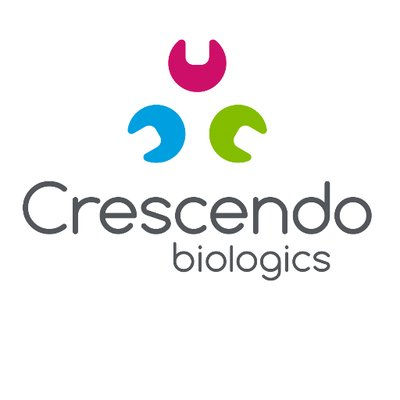预约演示
更新于:2025-05-07
4-1BB x ROR1
更新于:2025-05-07
关联
3
项与 4-1BB x ROR1 相关的药物作用机制 4-1BB抑制剂 [+3] |
在研机构 |
原研机构 |
在研适应症 |
非在研适应症- |
最高研发阶段临床1/2期 |
首次获批国家/地区- |
首次获批日期1800-01-20 |
作用机制 4-1BB抑制剂 [+2] |
在研适应症 |
非在研适应症- |
最高研发阶段临床前 |
首次获批国家/地区- |
首次获批日期1800-01-20 |
作用机制 4-1BB抑制剂 [+1] |
在研机构 |
原研机构 |
非在研适应症- |
最高研发阶段临床前 |
首次获批国家/地区- |
首次获批日期1800-01-20 |
10
项与 4-1BB x ROR1 相关的临床试验NCT06066203
An Open, Multicenter, Phase I / II Clinical Trial to Evaluate the Safety, Tolerability, Pharmacokinetics / Pharmacodynamics and Antitumor Activity of GNC-035 Tetra-specific Antibody Injection in Relapsed or Refractory Non-Hodgkin 's Lymphoma and Other Hematological Malignancies
Phase I main objectives: To observe the safety and preliminary efficacy of GNC-035 in patients with relapsed/refractory non-Hodgkin lymphoma and other hematological malignancies, to determine the DLT and MTD, or MAD, and to determine RP2D. Phase II Main objective: To explore the efficacy of GNC-035 in patients with relapsed/refractory non-Hodgkin lymphoma and other hematological malignancies.
开始日期2023-11-01 |
申办/合作机构  四川百利药业有限责任公司 四川百利药业有限责任公司 [+1] |
CTR20233127
评估GNC-035四特异性抗体注射液在复发或难治性非霍奇金淋巴瘤等血液系统恶性肿瘤中的安全性、耐受性、药代动力学/药效动力学及抗肿瘤活性的开放性、多中心、I/II 期临床研究
I期(预计共入组约20例):1)主要目的:观察GNC-035在复发/难治性非霍奇金淋巴瘤等血液系统恶性肿瘤患者中的安全性和初步有效性,确定GNC-035的 DLT 和 MTD,或 MAD,确定 RP2D。2)次要目的:评估GNC-035的药代动力学特征和免疫原性。3)探索性目的:初步探索GNC-035的药效动力学特征。初步探索GNC-035的生物标志物与不良反应和疗效的相关性。初步探索外周血免疫细胞杀伤实验、T细胞亚型分析、外周B细胞清除等探索性临床药理药效作用。 II期(计划入组约20例):1)主要目的:探索GNC-035在复发/难治性非霍奇金淋巴瘤等血液系统恶性肿瘤患者中的有效性。2)次要目的:评估GNC-035的安全性和耐受性、药代动力学特征和免疫原性。3)探索性目的:进一步探索GNC-035的药效动力学特征。进一步探索GNC-035的生物标志物与不良反应和疗效的相关性。进一步探索外周血免疫细胞杀伤实验、T细胞亚型分析、外周B细胞清除等探索性临床药理药效作用。
开始日期2023-11-01 |
申办/合作机构 |
CTR20232072
评估GNC-035四特异性抗体注射液在复发或难治性慢性淋巴细胞性白血病等血液系统恶性肿瘤中的安全性、耐受性、药代动力学/药效动力学及抗肿瘤活性的开放性、多中心、Ib/II期临床研究
Ib期(预计共入组约20例):1)主要目的:观察GNC-035在复发/难治性慢性淋巴细胞性白血病等血液系统恶性肿瘤患者中的安全性和耐受性,确定DLT和MTD,或MAD,以及RP2D。2)次要目的:评估GNC-035的药代动力学特征、免疫原性和疗效。3)探索性目的:初步探索GNC-035的药效动力学特征、生物标志物与不良反应和疗效的相关性,以及外周血免疫细胞杀伤实验、T细胞亚型分析、外周B细胞清除等探索性临床药理药效作用。II期(计划入组约20例):1)主要目的:探索GNC-035在复发/难治性慢性淋巴细胞性白血病等血液系统恶性肿瘤患者中的有效性。2)次要目的:评估GNC-035的安全性和耐受性、药代动力学特征和免疫原性。3)探索性目的:进一步探索GNC-035的药效动力学特征、生物标志物与不良反应和疗效的相关性,以及外周血免疫细胞杀伤实验、T细胞亚型分析、外周B细胞清除等探索性临床药理药效作用。
开始日期2023-08-16 |
申办/合作机构 |
100 项与 4-1BB x ROR1 相关的临床结果
登录后查看更多信息
100 项与 4-1BB x ROR1 相关的转化医学
登录后查看更多信息
0 项与 4-1BB x ROR1 相关的专利(医药)
登录后查看更多信息
2
项与 4-1BB x ROR1 相关的文献(医药)2023-01-01·Frontiers in oncology
ICOS and OX40 tandem co-stimulation enhances CAR T-cell cytotoxicity and promotes T-cell persistence phenotype.
Article
作者: Garcia-Robledo, Juan E ; Franco-Fuquen, Pedro ; Castro, Januario E ; Moreno-Cortes, Eider ; Booth, Natalie ; Forero, Jose
PLOS ONE3区 · 综合性期刊
Sleeping Beauty Transposition of Chimeric Antigen Receptors Targeting Receptor Tyrosine Kinase-Like Orphan Receptor-1 (ROR1) into Diverse Memory T-Cell Populations
3区 · 综合性期刊
ArticleOA
作者: Thokala, Radhika ; Hurton, Lenka V ; Deniger, Drew C ; Huls, M Helen ; Widhopf, George F ; Yu, Jianqiang ; Mi, Tiejuan ; Maiti, Sourindra N ; Olivares, Simon ; Singh, Harjeet ; Wierda, William G ; Champlin, Richard E ; Figliola, Matthew J ; Kipps, Thomas J ; Cooper, Laurence J N
24
项与 4-1BB x ROR1 相关的新闻(医药)2025-01-20
·动脉网
双抗正值风口,三抗已初露苗头。
2025年1月13日,先声药业旗下抗肿瘤创新药公司先声再明宣布,已与全球制药公司艾伯维(AbbVie)就其处于中国和美国进行临床1期研究阶段的,GPRC5DxBCMAxCD3的TCE三抗管线SIM0500达成许可选择协议,艾伯维将支付给先声再明一定的预付款以及最高10.55亿美元的选择性权益付款和里程碑付款,以及大中华区以外地区的销售分成。
尽管单克隆抗体和双特异性抗体在临床治疗上都发挥了至关重要的作用,但对于恶性肿瘤的治疗疗效仍然有限。随着抗体药物的发展,同时靶向三个特异性抗原结合位点的三特异性抗体,在肿瘤治疗领域展现了非凡的应用前景。
与双特异性抗体相比,三特异性抗体还能够与肿瘤细胞或免疫细胞表面的另一个靶点相结合,或桥接免疫细胞并阻断双信号通路等作用,更有利于将药物或免疫细胞重定向至肿瘤部位,增强结合特异性,提高靶向性,降低脱靶毒性,从而提升抗肿瘤能力。
因此,虽然当下全球暂时没有三抗药物获批,可是已经有不少中国Biotech布局其中。同时,MNC也从2024年开始布局,或许我们将在2025年的BD交易中看到越来越多的三抗管线。
01
MNC悄然入局
2024年三抗的交易数量超过了过去3年的总和且总额近80亿美元。
与双抗的双靶点相比,三抗的抗体组合更加丰富多样,也为抗体药物的研发提供了更多的空间。因此,MNC开始通过并购、许可交易以及股权投资等方式入局三抗/多抗赛道。
近几年三抗交易情况,据公开信息收集整理
可以看到,包括辉瑞、艾伯维、GSK、吉利德以及默沙东这些MNC在2024年都已出手,特别是默沙东一年内就花了近40亿美元并购两家专注于三抗药物开发的公司,可见其对三抗的态度。
其中,以30亿美元卖给默沙东的EyeBio值得一说。EyeBio成立于2021年,迄今为止融资1.3亿美元,而默沙东早在A轮就参与其中。2024年2月,EyeBio公布了其核心管线EYE103的1b/2a期临床积极数据,随后在5月,默沙东便出手并购,到了8月,Clinicaltrials网站便出现了EYE103临床2/3期试验的信息,可谓是惟快不破。
默沙东在2024年1月并购Harpoon的交易则更凸显默沙东对三抗的看好。此次交易除了收获临床中颇具前景的DLL3/CD3抗体管线外(MK6070),还得到了Harpoon多个三特异抗体平台,其中包括在肿瘤微环境中特异性激活的ProTriTAC和TriTAC-XR三特异抗体平台这一前瞻性技术平台。
值得注意的是,据Insight数据库信息,MK6070和罗氏的RO7616789以及泽璟生物的ZG006是全球范围内仅有的三款进入临床阶段的靶向DLL3的三抗管线。到了8月份,第一三共与默沙东签订MK6070的全球共同开发和商业化协议(默沙东保留该药在日本的独家权力),第一三共将付出1.7亿美元的首付款。
有意思的是Harpoon也曾出现在艾伯维的故事里,早在2019年,艾伯维以3000万美元+5000万美元的里程碑付款获得了Harpoon旗下一条三抗管线的全球独家授权。只是后来艾伯维对其重视不够,将权益退回。
此次艾伯维花大价钱收购先声再明的三抗管线,很有可能是受到竞争对手的影响。例如强生旗下就拥有CD38单抗、BCMA-CAR-T、BCMAxCD3双抗、甚至GPRC5DxCD3双抗等多个多发性骨髓瘤(MM)领域产品,而艾伯维自身仅有一款BCMAxCD3双抗似乎显得势单力薄。
先声再明的GPRC5D/BCMA/CD3三抗在前期研究中表现出了针对MM细胞的强大T细胞毒性效应,肿瘤杀伤效果显著,耐受性好,起效剂量低,停药后肿瘤不复发等多重优势。对艾伯维而言,既然错过了GPRC5D/CD3双抗,直接入局BCMA/GPRC5D/CD3三抗也不失为一种选择。
从这些并购事件不难看出,进入临床阶段的三抗管线拥有较高的交易价值。此外,涉及热门靶点的三抗管线,也极具BD潜力。目前,全球的三抗管线已经开始向肿瘤和自免这两大市场推进。
02
超100条管线在研,默沙东靠并购领先
三抗的多样性带来的更多可能性,让药企趋之若鹜。
尽管目前尚未有三抗药物获批,但已有多家生物医药企业布局三特异性抗体,并研发设计出具有迭代优势的靶点组合药物。据不完全统计,目前全球三抗药物管线已超百条,其中约有一半已进入临床阶段,只是大多数尚处于临床早期阶段。
部分在研三抗管线,据公开信息整理
MNC中,赛诺菲布局较多,如靶向Anti-CD3/CD38/CD28的SAR442257,其介导了强烈的肿瘤细胞杀伤作用,与抗CD38单抗相比,SAR442257在体外对CD38高表达和CD38低表达的MM细胞均表现出高3~4个数量级的杀伤效力。SAR443579(NKp46/CD16/CD123)则有可能成为血液瘤患者的新选择。辉瑞开发的Anti-IL-13/IL-4/TSLP(PF-07275315),属于三功能融合蛋白,针对特应性皮炎已进入临床2期。
从时间上来看,全球的三抗/多抗管线从2021年开始大幅增长,国内同样也是从这一年开始出现增长。到了2024年,已经有多家中国Biotech布局三抗赛道,仅这一年,国内就有超过10条三抗1类新药管线首次在国内获批IND,进展较快的包括天广实、百利天恒、神州细胞、信达生物、嘉和生物、泽璟生物、恩沐生物、博锐生物以及普米斯等。
从适应症分布来看,三抗延续了单抗和双抗类药物类似的思路,最热门的领域依然是肿瘤,整体管线占比超过50%,毕竟抗肿瘤药物市场需求大、医保覆盖范围广,企业有推动创新的动力。
03
国产三抗百花齐放
国内药企正悄然加速三抗赛道的研发。
如基石药业在2024年底宣布旗下用于治疗多种实体瘤的管线CS2009(PD-1/VEGF/CTLA-4三特异性抗体)已在澳大利亚递交临床试验申请。受此消息影响,公司股价一度上涨7%。
市场之所以如此热情,既有康方双抗在2024年的铺垫,也有市场对于后续三抗爆发的期待。
从作用机制来看,PD-1/VEGF/CTLA-4三特异性抗体相对于康方PD-1/VEGF双抗,anti-CTLA-4能促进更多初始T细胞激活、迁移浸润至肿瘤组织。在第39届癌症免疫治疗学会年会上基石药业公布的临床前数据显示,CS2009展示出优于潜在竞品(包括PD-1/CTLA-4双抗、PD-1/VEGFA双抗以及抗PD-1/抗CTLA-4联合疗法)的抗肿瘤活性。
此外,阿斯利康的PD-1/CTLA-4双抗目前也有4项适应症(非小细胞肺癌、胸膜间皮瘤、宫颈癌和头颈鳞癌)处于临床3期阶段,且从前期数据来推断成功概率较高。并且这些靶点都是成熟靶点,组合之下能覆盖包括非小细胞肺癌、卵巢癌、肾细胞癌、宫颈癌、肝细胞癌、胃癌等多个肿瘤适应症。同时对于PD-(L)1疗法响应不佳的PD-L1低表达或PD-L1阴性的群体也能进一步获益。
如果说康方的PD-1/VEGF双抗有希望向K药发起冲击,那么基石药业和宏成药业都有布局的PD-1/CTLA-4/VEGF三抗是否也有进一步的空间呢?
三特异性抗体按照作用机制的不同主要分为:T细胞接合器、免疫检查点抑制剂、NK 细胞接合器、靶向三个肿瘤相关抗原、延长半衰期的TCE以及三功能融合蛋白等。目前的国产三抗管线类型相对全面。
恩沐生物的CMG1A46药物为靶向CD3/CD19/CD20的三特异性抗体,其适应症为急性淋巴细胞白血病、血液肿瘤、滤泡性淋巴瘤、弥漫性大B细胞淋巴瘤。CMG1A46同时靶向 T细胞表面的CD3以及B细胞上的两个抗原表位CD20和CD19,通过募集CD3+T细胞增强T细胞功能,介导B细胞耗竭并杀死表达CD19/CD20的B细胞。
基石药业的CS2006是靶向4-1BB/PD-L1/HSA的三特异性抗体,它是一款免疫检查点抑制剂,同时靶向肿瘤免疫抑制性PD-1/PD-L1通路和肿瘤免疫刺激性4-1BB通路,发挥PD-L1阻断作用以及4-1BB激活的协同效应,仅局部激活肿瘤定向的特异性免疫应答。
嘉和生物的GB263(Anti-EGFR/cMET/cMET)则走了靶向三个TAA的路径。通过靶向EGFR和两种不同的cMET表位,阻断cMET及EGFR的信号通路,下调cMET和EGFR的蛋白水平。拓创生物的TAVO-412也选择了类似思路。
普米斯生物的PM-8003是靶向PD-L1/TGF-β/VEGF的三功能融合蛋白,通过阻断TGF-β通路可以减少Treg细胞的数量,增加效应T细胞的活性,从而恢复对抗PD-L1治疗的敏感性。
有意思的是,国产三抗才刚加速,四抗就已经起步。
2024年12月20日,百利药业GNC-038四特异性抗体注射液的临床试验申请获得NMPA默示许可。9月20日,百利药业GNC-077多特异性抗体注射液临床试验也获得国家药品监督管理局药品审评中心(CDE)批准。
基于GNC平台,百利天恒开发了多款候选药物。其中,除未披露的GNC-077外,还有3款四特异性抗体已处于临床开发阶段,包括GNC-038(CD3 × 4-1BB × PD-L1 × CD19)、GNC-035(CD3 × 4-1BB × PD-L1 × ROR1)和GNC-039(CD3× 4-1BB × PD-L1 × EGFRvIII)。
可以看到国产多抗在肿瘤领域布局较为全面,考虑到近来MNC频繁收购双抗资产,并着手将肿瘤双抗管线拿去做自免临床,未来三抗在自免市场同样极具想象空间。
04
自免开始卷三抗
TCE的热浪终究开始扑向了自免。
2024年TCE双抗出尽了风头,如CD19/CD3,CD20/CD3等。2024年的交易显示未来三抗TCE将是一个重要的发展方向。2024年10月,GSK宣布以8.5亿美金收购中国恩沐生物的三特异抗体CMG1A46,根据协议,GSK将向恩沐生物支付3亿美金的首付款。
值得注意的是,新闻显示GSK计划开发和商业化CMG1A46,并将重点放在B细胞驱动的自身免疫疾病上,如系统性红斑狼疮(SLE)和狼疮性肾炎(LN),并有可能扩展到相关的自身免疫疾病。
据之前披露的信息,CMG1A46不仅可以杀伤CD19、CD20双阳性的B细胞,还可以清除CD19或者CD20单阳性的细胞,同时在体外的半数效应浓度仅为0.3pM,与传统的1+1型CD20 TCE相比,具有更好的安全性和更强的活性。在体内,CMG1A46可以在24小时内快速的清除B细胞,与传统CD20 TCE双抗相比可以给到更高的剂量,在1mpk的剂量下对B细胞的清除持续了28天。
艾伯维此次收购先声药业的SIM0500三抗,在血液瘤之外,BCMA和GPRC5D靶点在某些自免疾病的B细胞上也有表达,现有靶向BCMA的药物已经在干燥综合症、NMOSD、系统性硬化症、类风湿关节炎等自免疾病中展现出疗效。未来SIM0500在自免领域同样具有开发潜力。
有意思的是,NewCo的风也开始吹到国产多抗上。
2025年1月,药明生物与Candid Therapeutics达成研究服务合作协议,Candid将拥有一款基于药明生物通用型多特异性抗体专利技术平台WuXiBody发现的,处于临床前开发阶段的三特异性抗体的全球权益。就在20多天前,Candid还一口气宣布了三笔关于TCE与中国Biotech的研发合作交易。
2024年11月,维立志博与风险投资公司Aditum Bio就一款三抗药物达成了一项产品的独家选择权及许可协议,双方将基于维立志博CD19/BCMA/CD3三特异性T细胞衔接器(TCE)LBL-051,成立新药研发公司Oblenio。
三特异性抗体管线有望成为2025年靓丽的风口。
*封面图片来源:123rf
如果您认同文章中的观点、信息,或想进一步讨论,请与我们联系;也可加入动脉网行业社群,结交更多志同道合的好友。
近
期
推
荐
声明:动脉网所刊载内容之知识产权为动脉网及相关权利人专属所有或持有。未经许可,禁止进行转载、摘编、复制及建立镜像等任何使用。
动脉网,未来医疗服务平台
引进/卖出临床1期并购临床2期
2024-11-06
摘要:过继性细胞疗法(Adoptive Cell Therapy, ACT)包括多种策略,旨在增强T淋巴细胞和其他效应细胞的活动,这些细胞协调抗肿瘤免疫反应,包括嵌合抗原受体(CAR)T细胞疗法、T细胞受体(TCR)基因修饰的T细胞,以及用肿瘤浸润性淋巴细胞(TILs)进行治疗。CAR-T细胞在某些血液恶性肿瘤中的卓越成果推动了对ACT在难治性实体恶性肿瘤患者中的研究。然而,实体瘤的某些特征,如它们的抗原异质性和免疫抑制微环境,阻碍了针对抗原的治疗的有效性。其他ACT方式,如TIL疗法,已成为有前景的新策略。TIL疗法在某些免疫原性癌症中显示出安全性和有希望的活性,主要是晚期黑色素瘤,并有令人兴奋的理由将其与免疫检查点抑制剂结合使用。然而,TIL疗法在临床实践的实施受到多个生物学、物流和经济挑战的阻碍。在这篇综述中,我们的目标是总结当前的知识、可用的临床结果和未来研究的潜在领域,这些研究涉及T细胞疗法在实体瘤患者中的使用。
1.引言
1.1.T细胞、抗肿瘤反应和免疫逃逸
我们的免疫系统的抗肿瘤活性是一个高度复杂的过程,涉及多个调节和负反馈途径。当恶性细胞被巨噬细胞和自然杀伤(NK)细胞——先天免疫的组成部分——识别和攻击时,由累积突变产生的异常蛋白被释放并被树突状细胞和其他抗原呈递细胞(APC)吞噬。在周围淋巴结中,这些肿瘤相关抗原(TAA)通过主要组织相容性复合体I型(MHC-I)分子向原始CD8+ T细胞的T细胞受体(TCR)展示,导致它们的激活。为了使这种“免疫突触”成功,T细胞膜上的其他共刺激受体(如B7)也应该被激活。同时,MHC II型(MHC-II)分子与CD4+ T辅助淋巴细胞的TCR之间的相互作用导致B细胞的激活和随后产生抗肿瘤抗体,并引发额外的机制,包括树突状细胞许可和细胞因子产生,以促进CD8+ T细胞的功能和分化。一旦CD8+ T细胞被激活,它们就会迁移到肿瘤部位,并识别恶性细胞表面由MHC-II分子呈现的TAA,引发适应性免疫的效应阶段,最终导致肿瘤细胞死亡。这些肿瘤浸润性淋巴细胞(TILs)的数量和表型与几乎所有实体癌症亚型的生物学行为、预后和对抗癌治疗的反应广泛相关。效应阶段的成功受到肿瘤微环境(TME)中的免疫抑制细胞对T细胞反应的抑制,包括骨髓源性抑制细胞(MDSCs)、肿瘤相关巨噬细胞(TAMs)和调节性T淋巴细胞(T-regs)。肿瘤细胞能够通过激活NF-kB和STAT3信号通路调节它们的功能和分化,诱导释放抑制TILs抗肿瘤活性的免疫抑制细胞因子(IL-6、IL-10、TGF-b)。抗肿瘤反应由被称为“免疫检查点”的分子执行的负反馈机制控制,包括在启动阶段——包括CTLA-4、LAG-3和TIM-3——和效应阶段——主要是程序性细胞死亡蛋白1(PD-1),由肿瘤和TME细胞表达的配体(PD-L1)激活。抗肿瘤反应的机制和潜在免疫生物标志物如图1所示。
图1
抗肿瘤反应的机制;(A) 先天免疫;(B) 适应性免疫(启动阶段);(C) 适应性免疫(效应阶段)。TAA,肿瘤相关抗原;DAMPs,损伤相关分子模式;TCR,T细胞受体;MHC,主要组织相容性复合体;IL-12,白介素-12;IFN,干扰素。
逃避免疫系统的能力是恶性细胞的特征。在实体肿瘤中,一些最相关的免疫逃逸机制包括免疫检查点的上调——这为使用免疫检查点抑制剂(ICI)提供了理论基础——,MHC-I或其他在抗原呈递中起关键作用的分子的丢失,导致免疫抑制TME的细胞因子(IL-6、IL-10、TGF-b)的产生,以及激活促进T-regs浸润的致癌途径——如色氨酸2,3-双加氧酶(IDO)途径——或抑制CD8+ T细胞向肿瘤部位的迁移——如Wnt/b-catenin途径——。最近的数据显示,从恶性细胞到健康细胞的生物分子货物的远程转移,通过外泌体介导,也可能在误导抗原识别机制中发挥关键作用,从而促进免疫肿瘤逃逸。自2011年和2015年FDA分别批准抗CTLA4和抗PD1疗法用于晚期黑色素瘤以来,ICI单独或与其他疗法结合已改变了几乎所有实体肿瘤的治疗格局。然而,还有几种其他新兴策略可以增强免疫抗肿瘤反应,其中一些在ICI难治性肿瘤中显示出有希望的结果,这肯定会在未来几年增加免疫疗法在癌症治疗中的重要性。
1.2.采用性细胞疗法的基础
采用性细胞疗法(ACT)包括几种技术,这些技术使用T淋巴细胞本身,在经过人工修饰或基因工程后,以提高它们的抗肿瘤活性。这意味着从患者身上提取自体T淋巴细胞,并在体外进行操作和扩增。同时,患者接受淋巴细胞耗竭化疗(CT)——通常是氟达拉滨加环磷酰胺——以消灭无效和免疫抑制的淋巴细胞。在此过程之后,改进的细胞产品被重新输回患者体内。不同ACT方式之间的差异在于体外T细胞修饰的特点:CAR-T和TCR基因修饰的T细胞被基因工程化,以整合对选定肿瘤抗原具有高亲和力的修饰膜受体。然而,与血液恶性肿瘤相比,实体瘤由多克隆细胞群体组成,具有巨大的抗原异质性,这阻碍了针对抗原的疗法的有效性。TIL疗法基于从肿瘤本身提取的浸润T细胞的激活和扩增,这些T细胞本质上对肿瘤抗原有反应,为对抗实体癌症不断变化和异质性的细胞群体提供了一个有趣的理论基础。
2.CAR-T细胞在实体瘤中的作用?
2.1.引言
CAR-T细胞是经过基因修饰的淋巴细胞,它们整合了一个由三部分组成的嵌合抗原受体(CAR):一个带有单链片段变量(scFv)的细胞外域,允许抗原识别,一个跨膜域——通过一个间隔区与细胞外部分相连——以及一个细胞内域。这包括一个CD3复合体——激活下游信号通路——和几个共刺激域(通常是CD28和/或4-1BB),这些域加强了T细胞因抗原识别而释放的细胞质活性。近年来,CAR-T细胞结构和制造的创新导致了它们临床疗效的显著改善,特别是第四代CAR-T细胞的发展。第五代CAR配备了三个共刺激域,并且能够分泌针对B细胞成熟抗原(BCMA)的抗PDL1 scFv阻断分子,已显示出在多发性骨髓瘤患者中增强的抗肿瘤效果和减少T细胞耗竭。纳米抗体或单域抗体(VHH)最近被用作scFv的替代品,用于T细胞表面的抗原靶向域,基于它们的多种优势,包括它们的小尺寸、高亲和力、特异性和稳定性。基于VHH的CD19重定向CAR-T细胞在扩增率、细胞毒性和抗肿瘤反应方面显示出与基于scFv的对应物相似的效果。由于它们的分子结构,CAR-T细胞只识别细胞外抗原,当它们的scFv对目标蛋白有高亲和力——并且由肿瘤细胞均匀表达——时,它们特别有效。这解释了CAR-T细胞在白血病和淋巴瘤患者中的疗效,这些疾病由克隆细胞群体组成,它们在膜上均匀表达某些抗原——如CD19——。自2018年以来,tisagenlecleucel和axicabtagene-citoleucel已获得EMA批准,用于治疗B细胞LLA和难治性非霍奇金淋巴瘤,而在2020年,brexucabtagene-autoleucel获得EMA批准用于治疗曼特尔淋巴瘤,在重度预处理患者中实现了超过50%的完全缓解率。CAR-T细胞在血液恶性肿瘤中的卓越成果促使人们研究它们在实体瘤中的应用,主要使用过度表达的上皮抗原作为靶标。上皮生长因子受体(EGFR)、HER2、癌胚抗原(CEA)、间皮素和可溶性抗原GD2一直是CAR-T疗法的常见靶标,尽管许多其他抗原已成为临床前研究的对象。
2.2.临床结果
已有近500项评估实体瘤中CAR-T细胞的临床试验被注册,其中大多数在亚洲人群中进行,许多仍在进行中。大多数已完成的研究是I/II期试验,报告了适度的结果,只有偶尔和通常短暂的临床反应。关于CAR-T细胞的临床研究主要集中在胶质母细胞瘤(GBM)、肉瘤、神经母细胞瘤和胃肠道癌。
2016年,Brown等人报告了一例GBM患者在IL13靶向CAR-T疗法后8个月完全缓解(CR),尽管进一步的研究未能证实这些结果。Her2可能是GBM中CAR-T细胞的另一个有趣靶标;在一项涉及17名患者的临床试验中,报告了1个部分反应(PR)(持续9个月)和7例病情稳定(SD)(从2到29个月不等)。针对EGFR的CAR-T细胞已在两项临床试验中被评估用于GBM,结果为阴性。针对Her2的CAR-T细胞也已在肉瘤患者中进行测试。在一项包括19名Her2+复发或难治性肉瘤患者的I/II期研究中,观察到4例SD[3例骨肉瘤和1例小圆形细胞性肿瘤]。在神经母细胞瘤中,至少有三项临床试验评估了针对GD2的CAR-T细胞的疗效——基于针对GD2的单克隆抗体如dinutuximab的疗效,显示出有希望的结果(19名患者中有3个CR,8名患者中有4个PR,11名患者中有5个SD]。至于胃肠道(GI)癌,已评估了几个作为CAR-T疗法潜在靶标的抗原。在一项包括23名患有多种GI肿瘤的患者的治疗中,使用针对CD133的CAR-T细胞,观察到3个PR(2个胰腺和1个肝细胞癌[HCC])和14个SD。Zhan等人评估了针对Claudin 18.2(CLDN 18.2)的CAR-T疗法在11名CLDN 18.2阳性的胃或胰腺癌患者中的效果,报告了1个CR,3个PR和5个SD。针对EGFR的CAR-T疗法主要在胆胰肿瘤中被评估,显示出有希望的结果。Liu等人进行了一项包括14名难治性晚期胰腺癌患者的I期研究,报告了4个PR和8个SD;在Guo等人的I期研究中,包括19名患者(14名胆管癌,5名胆囊癌),观察到1个CR和10个SD。针对Glypican-3(GPC3)的CAR-T细胞和针对CEA的CAR-T细胞分别在HCC和结直肠癌中显示出适度的活性。针对间皮素的胸膜内CAR-T细胞已被评估——与ICI联合用于14名恶性间皮瘤和非小细胞肺癌(NSCLC)患者,显示出有希望的结果(2个CR,5个PR和4个SD)。在NSCLC中,一项I期研究显示了针对EGFR的CAR-T细胞的临床活性,11名患者中有2个PR和5个SD,针对ROR1的CAR-T细胞在ROR1+肿瘤中显示出初步的积极结果(6名患者中有4个PR)。针对前列腺特异性膜抗原(PSMA)的CAR-T疗法在转移性去势抵抗性前列腺癌(mCRPC)中取得了适度的结果。关于其他实体瘤中CAR-T疗法的证据更加稀缺,主要来自临床前研究。在实体瘤中评估CAR-T细胞的最相关临床试验的结果总结在图2中。
图2
在实体瘤中最具相关性的CAR-T细胞I/II期试验的临床结果。N,表示每项研究中的参与者数量。
3.经过工程化T细胞受体(TCR)改造的T细胞,是否只是更多的相同?
3.1.引言
表达工程化T细胞受体(TCR-T细胞)的T细胞代表了ACT的另一种方式,与CAR T疗法相比具有几个优势(50)。通过使用工程化的TCR而不是CAR,T细胞不仅能识别膜蛋白,还能识别由MHC分子呈递的细胞内抗原,涵盖了更广泛的肿瘤新抗原和治疗靶点。T细胞的内在特性,如高抗原敏感性和使用生理信号传导途径,提高了TCR-T细胞的抗肿瘤功能,并降低了靶向非肿瘤(OTOT)毒性的风险。然而,与CAR-T细胞相比,TCR-T细胞也有一些缺点,例如它们对目标抗原的亲和力较弱,以及它们局限于某些人类白细胞抗原(HLA)单倍型,这限制了可能从每个改造TCR中受益的患者数量。此外,作为针对抗原的改良T淋巴细胞,CAR-T疗法在实体肿瘤中的所有限制——抗原异质性、T细胞迁移的困难以及免疫抑制性TME的有害影响——也适用于TCR-T细胞。
3.2.临床结果
2006年,Morgan等人发表了首个针对实体肿瘤的TCR-T细胞试验结果,针对17名转移性黑色素瘤患者中的MART-1(其中2名PR)。从那时起,至少还有三项I/II期临床试验评估了针对MART-1的TCR-T细胞在晚期黑色素瘤中的疗效——所有试验都使用逆转录病毒作为载体——并报告了不同的结果,ORR从0%到30%不等。在其中一项试验中,还评估了蛋白gp100作为16名患者的目标,观察到1个持续CR(>14个月)和2个PR(ORR:18.8%)。所有这些研究中TCR-T细胞相关的毒性相似,以皮肤毒性为主(23-94%)和CRS的低发生率(<15%)。纽约食管鳞状细胞癌(NY-ESO)-1抗原在黑色素瘤和某些肉瘤免疫原性亚型中——特别是滑膜肉瘤,80%的患者中NY-ESO-1过表达——是一个有希望的目标。在一项II期试验中,38名黑色素瘤和滑膜肉瘤患者接受了NY-ESO-1 TCR-T细胞治疗,ORR为57.9%,包括5个维持CR和几个长期PR,没有与TCR-T细胞相关的严重毒性。在另外两项I期研究中也获得了类似的结果,其中一项CRS的发生率为10%。另外两项I/II期试验评估了滑膜肉瘤患者中的NY-ESO-1 TCR-T细胞——使用慢病毒作为载体而不是逆转录病毒——获得了类似的结果(ORR 30%至50%),其中一项CRS的发生率为41.7%。NY-ESO-1也被用作TCR-T细胞的目标,在一个小的I期试验中包括3名不同实体肿瘤的患者,结果为阴性。其他癌症-睾丸抗原,如MAGE家族蛋白,已在多肿瘤I/II期试验中作为TCR-T细胞的目标进行了评估。一项I期试验评估了针对MAGE-A3的TCR-T细胞在17名实体肿瘤患者中的疗效,观察到ORR为23.5%(包括1个持续CR)。Morgan等人用MAGE-A3靶向细胞治疗了9名实体肿瘤患者(包括7名滑膜肉瘤),获得了56%的ORR(包括1个持续CR),但毒性严重(3名患者ICANS和2例治疗相关死亡)。在一项38名患者接受MAGE-A4-TCR-T细胞治疗的I期试验中,观察到50%的CRS,另一项MAGE-A3-TCR-T细胞的试验在2例治疗相关死亡后被暂停。与神经系统细胞通常表达的蛋白质——如EPS8L2——的交叉反应被假设为MAGE-TCR-T细胞试验报告的严重神经毒性和毒性死亡的来源。针对MAGE的TCR-T细胞在NSCLC和食管癌中获得了阴性或适度的结果。同样,在针对其他非肿瘤细胞特异性表达的蛋白质的研究中也观察到了显著的毒性。例如,一项评估针对CEA的TCR-T细胞在结直肠癌患者中的I期试验因100%的患者出现严重结肠炎而暂停。治疗病毒相关肿瘤是TCR-T细胞的一个有趣方法,因为针对感染肿瘤细胞但不由正常组织表达的特定病毒抗原,应该可以避免交叉反应和OTOT毒性的问题。事实上,两项试验评估了针对人乳头瘤病毒(HPV)致癌相关蛋白(E6和E7)的TCR-T细胞在HPV+肿瘤中的效果,没有任何相关毒性和有趣的临床结果(ORR分别为16.7%和50%)。Meng等人评估了针对乙型肝炎病毒(HBV)的TCR-T细胞在8名HBV+ HCC患者中的效果,观察到1个持续PR和仅有1例肝毒性。Veatch等人测试了针对Merkel癌多瘤病毒(MCPyV)的TCR-T细胞在5名难治性Merkel细胞癌患者中的效果,报告了1个PR和没有显著不良事件。然而,鉴于病毒相关肿瘤在晚期实体癌中所占比例较小,需要其他策略来克服TCR-T细胞的交叉反应和OTOT毒性。与此相关,一个令人兴奋的假设是使用新抗原——肿瘤体细胞突变的副产品,不在非恶性组织中存在——作为TCR-T细胞的肿瘤限制性和免疫原性靶标。事实上,一些研究表明,对免疫检查点抑制剂的长期反应是由新抗原反应性效应T细胞介导的,为结合TCR-T细胞和ICI提供了理论基础。不幸的是,一项探索个性化新抗原靶向TCR-T细胞在16名晚期实体肿瘤患者中的有效性的I期试验获得了令人失望的结果。在其他肿瘤中也观察到了对TCR-T细胞的偶尔反应。Leidner等人报告了一名晚期胰腺腺癌患者使用针对KRAS G12D的TCR-T细胞获得的部分反应(持续>6个月)。Kim等人报告了一名转移性乳腺癌患者对针对TP53的TCR-T细胞的部分反应。针对实体肿瘤的已发表TCR-T细胞临床试验的结果已在表1中总结。
4.挑战和未来策略
4.1.挑战和未来策略
CAR-T和TCR-T细胞在治疗实体肿瘤患者方面都存在固有的局限性,这可能解释了与CAR-T疗法在血液学恶性肿瘤中获得的临床结果相比,显著较差的临床结果。
4.1.1.抗原异质性
与淋巴瘤和白血病的克隆性质不同,实体肿瘤——特别是在转移性疾病的背景下——以获得体细胞突变为特征,导致不同细胞系的多克隆扩展,产生基因组不稳定性与抗原异质性。在同一疾病不同区域的适应性免疫系统中,新表位表达和克隆扩展的显著肿瘤内异质性也在乙型肝炎病毒(HBV)相关的肝癌中得到证实。在Her2+乳腺癌中,空间转录组学研究表明,决定细胞与T淋巴细胞和其他免疫细胞相互作用的基因签名表达在患者内部存在异质性。O’Rourke等人研究了7名胶质母细胞瘤(GBM)患者肿瘤细胞中几种抗原的表达,在单次输注针对EGFR的CAR-T细胞前后,观察到所有患者EGFR表达显著下降,但具有已知免疫抑制功能的几种其他抗原(CD8, GRZMB, CD25, IDO1, PDL1, 和 FoxP3)显著增加。这些结果揭示了针对特定抗原的T细胞疗法可能迅速促进具有免疫抑制活性的耐药细胞亚克隆的选择。提出具有多抗原识别能力的T细胞作为克服这一问题的潜在策略。一些临床前研究表明,具有双特异性适配器的CAR-T细胞可以促进抗原性不同的肿瘤的根除。更进一步,配备合成Notch(synNotch)受体的CAR-T细胞可能只能在识别肿瘤特异性抗原后诱导CAR表达,创建精确的启动和杀伤识别电路。尽管这些是有希望的策略,但它们尚未在临床试验中得到评估,需要进一步的研究来评估其可行性。
4.1.2.靶向非肿瘤毒性
大多数在实体肿瘤中被CAR-T或TCR-T细胞靶向的抗原并不特异性于癌细胞,也表达在非恶性组织上,导致潜在的靶向非肿瘤毒性。除了在血液学恶性肿瘤患者中观察到的通常不良事件,如细胞因子释放综合征(CRS)和免疫效应细胞相关神经毒性综合征(ICANS),这些通常可以管理,这些细胞疗法的靶向非肿瘤效应增加了显著的毒性,并且通常是实体肿瘤患者剂量限制性的。T细胞激活后释放的穿孔素和颗粒酶被认为在靶向非肿瘤细胞毒性中起关键作用,尽管T细胞表面促凋亡分子(如FAS配体)的上调也可能有助于组织破坏。急性呼吸窘迫、消化性出血和严重的皮肤粘膜毒性在几项临床试验中被报告为靶向非肿瘤效应,特别是针对Her2、CLDN18.2和EGFR的CAR-T细胞。有趣的是,尽管GD2在健康脑组织中表达,但在患有弥漫中线胶质瘤的患者中没有报告针对GD2的CAR-T细胞的靶向非肿瘤毒性。尽管对抗原识别阈值知之甚少,但这表明在肿瘤和健康细胞之间表达不同水平的抗原的情况下,CAR-T疗法可能是可行的,且没有显著的靶向非肿瘤效应。克服靶向非肿瘤毒性的一些理论策略包括调节scFv亲和力和/或CAR结构、局部给药CAR-T细胞以避免系统效应、开发工程方法以外部控制CAR-T细胞活性,以及设计基于蛋白质的逻辑电路策略以限制CAR-T细胞激活。需要进一步的研究来评估这些方法的临床可行性,并发现严重毒性的预测生物标志物。
4.1.3.T细胞迁移
确保CAR-T细胞与肿瘤细胞之间的接触在白血病和淋巴瘤中不是问题,因为恶性细胞集中在血液和淋巴结中;然而,在实体转移性肿瘤中,特别是在浸润免疫特权器官——如中枢神经系统——的情况下,这是一个重大障碍。几项研究表明,与原发性肿瘤相比,实体癌的转移病灶的淋巴细胞浸润明显较低,表明T细胞迁移到肿瘤部位的丧失是免疫逃逸的相关机制,并可能促进肿瘤进展。在转移性黑色素瘤患者中,Harlin等人表明某些细胞因子(CCL2, CCL3, CCL4, CCL5, CXCL9, 和 CXCL10)在富含TILs的病变中的表达明显高于淋巴细胞浸润不良的病变,表明这些分子在T细胞招募中发挥重要作用。针对肿瘤血管和微环境以调节趋化反应是一个激动人心的研究课题,以改善CAR-T细胞迁移到实体肿瘤。
4.1.4.免疫抑制性TME
除了阻碍T细胞迁移外,TME对浸润肿瘤部位的淋巴细胞具有抑制作用,这是CAR-T细胞功能的障碍。此外,持续暴露于肿瘤抗原和炎症信号被认为会逐渐减轻改良T细胞的功能和增殖,导致CAR-T细胞“耗竭”。针对T细胞内在途径(PD-1/PD-L1轴,TOX/NR4A,TGF-b,CBL-B),使用CRISPR技术调节CAR的表面表达,以及解耦抗原识别与CAR激活信号,是正在研究的激动人心的方法,以克服耗竭并改善CAR-T细胞在实体肿瘤中的临床结果。
5.TIL 疗法,实体瘤中ACT的希望?
5.1.引言
来自不同实体癌症的体外扩增肿瘤浸润性淋巴细胞(TILs)包含一组反应于肿瘤相关抗原异质性的寡克隆效应T细胞。这为TILs在体外(脱离肿瘤微环境的不利影响)进行人工扩增和激活提供了理论基础,随后将它们与刺激细胞因子IL-2一起重新输回体内,以期在化学耗尽免疫抑制细胞后创造一个更有利的环境。由于TIL疗法不是针对特定抗原的治疗,而是使用自然“选择”的肿瘤反应性淋巴细胞,理论上可以克服抗原异质性、肿瘤迁移和靶向肿瘤外毒性等问题,这些问题限制了CAR-T和TCR-T疗法对抗晚期实体瘤的有效性。
5.2.黑色素瘤的临床结果
TIL疗法主要在晚期黑色素瘤中进行了评估。自从Rosenberg进行的首批积极研究以来,几项I/II期试验已经获得了扩展TILs的临床反应——单独或与全身照射结合——在IL2剂量、输注细胞数量和淋巴细胞耗尽强度方面有显著变异性。所有这些研究都是在ICI和靶向疗法大规模扩展成为晚期黑色素瘤的标准治疗之前进行的。在2020年ASCO会议上,Sarnaik等人报告了一项II期试验的结果,评估了冷冻保存的自体TIL疗法lifileucel(LN-144)在对抗PD-1 +/-抗CTLA4疗法(以及BRAF/MEK抑制剂在BRAF突变肿瘤中)进展的转移性黑色素瘤患者中的疗效。在66名可评估的患者中,有2例CR和22例PR(ORR 36.4%),中位反应持续时间在18.7个月时尚未达到。81%的患者观察到肿瘤负担的减少。无论BRAF突变状态、PD-L1表达和肿瘤位置如何,都观察到了反应。在有脑和肝转移、基线大量疾病、乳酸脱氢酶(LDH)水平升高和先前抗PD-1治疗的患者中观察到了客观反应。安全概况与已知的淋巴细胞耗尽和IL-2方案的毒性一致。两年后,Rohaan等人发表了第一项针对实体瘤的ACT III期试验,比较TIL疗法与ipilimumab在IIIC/IV期黑色素瘤患者中的疗效。共有168名患者以1:1的比例随机分配接受TILs(至少5×10^9个细胞,先进行淋巴耗竭CT,随后以高剂量600,000 IU/kg的IL2)或ipilimumab(每组84名患者)。89%的患者曾接受过先前的系统治疗,其中大多数人接受了辅助或一线抗PD-1抗体。中位无进展生存期(mPFS)在TIL组显著更高(7.2对比3.1个月;风险比[HR] 0.50;p<0.001),以及ORR(49%对比21%)。中位总生存期为25.8个月(对比ipilimumab组的18.9个月)。上述所有研究都是在皮肤黑色素瘤患者中进行的。一项II期试验评估了21名转移性葡萄膜黑色素瘤患者的TILs,其中1例持续CR和6例PR(ORR为35%)。有趣的是,这些反应者中有3人(43%)之前接受过抗PD-1和/或抗CTLA4药物的免疫治疗,没有任何临床益处。这些结果表明,TIL疗法值得在非皮肤黑色素瘤中进一步研究,特别是考虑到其对ICI和其他系统治疗的难治性。TIL疗法发表的临床试验结果已在表2中总结。
5.3.其他实体瘤的临床结果
尽管TIL疗法尚未在非黑色素瘤肿瘤中取得强有力的结果,但一些I/II期临床试验已在其他免疫原性恶性肿瘤中显示出有希望的数据,如NSCLC、宫颈癌和头颈癌。在一项I/II期试验中,Creelan等人评估了20名在接受nivolumab单药治疗后进展的晚期NSCLC患者中,自体TILs与抗PD-1 nivolumab联合使用的疗效。在13名可评估的患者中,有3例客观反应(2例CR——均持续超过18个月——1例PR,以及8例SD伴肿瘤缩小)。有趣的是,其中一名持续CR的患者是EGFR突变(19号外显子缺失),这是已知的抗PD-1失败预测因子,表明通常对ICI有抗性的NSCLC亚型可能对TIL疗法不具有抗性。需要进一步研究以评估TIL疗法是否对ICI使用具有重新敏感化效果。一项II期试验评估了28名接受过预处理的晚期NSCLC患者的TIL单药疗法(LN-145),在24名可评估的患者中观察到1例CR(>21个月)和5例PR(其中4例>8个月)(ORR 25%)。
TIL疗法在一项II期试验中也显示出有希望的结果,该试验涉及晚期宫颈癌患者,观察到1例CR和11例PR(其中2例未被研究标准确认)(ORR:44%)。另一项研究评估了29名HPV+上皮肿瘤患者(头颈癌、宫颈癌和肛门癌),ORR为24%(包括2例CR,持续时间超过53和67个月)。O'Malley等人进行了一项多肿瘤试验,使用TIL疗法加pembrolizumab治疗31名患者(13名头颈癌,10名宫颈癌和8名黑色素瘤),取得了积极结果(ORR分别为46.2%,50%和87.5%)。这种TIL+ICI组合也在头颈癌和转移性乳腺癌的小规模II期试验中进行了评估,结果令人鼓舞(ORR分别为44%和50%)。有趣的是,第二项研究包括了一名激素受体阳性乳腺癌患者,她实现了持续的CR(超过5年)。然而,这些试验的一个限制是,一些患者,特别是那些对ICI有反应的肿瘤患者,如黑色素瘤和头颈癌,可能对单独的抗PD1阻断有反应,这使得评估TIL疗法的作用变得困难。在不同的实体瘤中评估了ipilimumab、TIL疗法和nivolumab的顺序使用,在25名患者的I/II期试验中,结果适中(2例PR,持续时间为3至7个月)。
5.4.临床实践的挑战
尽管TIL疗法在临床试验中取得了有希望的结果,但许多实际和经济挑战限制了其大规模实施。TIL制造始于肿瘤组织的外科切除,最好来自可以通过微创手术获取的转移灶。迄今为止,无论切除的病变部位如何,TILs的生成都同样成功。外科样本的酶消化和/或机械破碎后,将碎片培养在含IL-2的培养基中,这个过程可能需要2-6周。这些最小扩展或“年轻”的TILs使用高剂量的IL-2、抗CD3和辐照的外周血单个核细胞(PBMCs)或“饲养细胞”进行大规模扩展,在一个2周的快速扩展协议(REP)中。扩展的TILs最终被重新输回淋巴耗尽的患者体内,随后进行高剂量IL2。这是一个昂贵且后勤复杂的流程,需要高度专业的设施、规范化的程序和合格的技术人员。这些是TIL疗法广泛应用的重要限制,特别是在发展中国家。几乎所有接受TIL疗法治疗的患者都会出现3-4级不良事件,主要在淋巴耗尽和IL2给药后,也需要高度专业的管理。显著的治疗毒性,加上制造流程的长期性,是TIL疗法在通常快速临床恶化的难治性转移瘤患者中成功应用的重大障碍。迄今为止,TIL疗法已在年轻、健康的患者中进行评估,他们的ECOG表现状态(PS)为0-1。即使在临床试验中选择的人群中,也常常发现只有一小部分筛选的患者最终能接受治疗。例如,在一项晚期乳腺癌的TIL疗法II期试验中,只有46名筛选患者中的6名(13%)接受了TILs输注。切除后无残留或可评估疾病、筛选材料不足、切除样本中淋巴细胞的阴性或弱分离、临床进展、PS恶化和淋巴耗尽相关的严重毒性是治疗失败的常见原因。最后,不仅是经济费用,TIL疗法的个体化特性也与常规商业药物不同,这是TIL疗法监管批准的重要挑战。以往在血液学恶性肿瘤中使用CAR-T细胞的经验无疑将为处理TIL疗法的健康经济方面及其在临床实践中的实施铺平道路。
6.结论
在实体瘤中,过继细胞疗法(ACT)的临床结果受到与血液学恶性肿瘤截然不同的生物学因素的制约,如它们的抗原异质性、免疫抑制微环境和免疫逃逸能力。数十项I/II期CAR-T细胞试验只导致了偶尔的、通常是短期的临床反应,尽管多抗原识别、SynNotch受体和通过CRISPR技术调节CAR等新策略是提高其疗效的有希望的方法。尽管抗原靶向治疗存在固有限制,TCR工程化T细胞与CAR-T细胞相比具有几个优势,并在某些肿瘤中显示出有希望的结果,如NY-ESO1过表达的黑色素瘤和滑膜肉瘤。作者认为,HPV+和其他病毒相关恶性肿瘤的治疗,以及使用新抗原作为靶标,是TCR-T细胞研究的激动人心的领域。从概念上讲,与其他ACT方式不同,TIL疗法基于提取、体外扩增和刺激自然反应的肿瘤浸润性淋巴细胞,然后将其重新输回淋巴耗尽的患者体内。TILs在晚期黑色素瘤中显示出积极结果,最近的一项积极的III期试验证明了它们在抗PD1难治性疾病中优于ipilimumab。TIL疗法的疗效,单独或与检查点抑制剂结合,也在其他实体瘤中得到证实,包括NSCLC、宫颈癌和头颈癌。选择性扩增新抗原反应性TILs或通过CRISPR技术对扩增细胞进行基因修饰是提高TIL疗法疗效的激动人心的研究领域,以提高TIL疗法在黑色素瘤患者中的疗效,并将其临床益处扩展到其他恶性肿瘤。然而,目前阻碍其大规模实施的众多临床和实际限制仍需克服。
识别微信二维码,添加生物制品圈小编,符合条件者即可加入
生物制品微信群!
请注明:姓名+研究方向!
版
权
声
明
本公众号所有转载文章系出于传递更多信息之目的,且明确注明来源和作者,不希望被转载的媒体或个人可与我们联系(cbplib@163.com),我们将立即进行删除处理。所有文章仅代表作者观点,不代表本站立场。
细胞疗法免疫疗法
2024-11-05
摘要:嵌合抗原受体(CAR)-T细胞过继免疫疗法是一种有前景的癌症治疗方法,它利用基因工程化的T细胞攻击肿瘤。然而,这种疗法可能会有一些不良反应。来源于CAR-T细胞的外泌体是CAR-T细胞的潜在替代品,可能克服一些限制。外泌体是细胞释放的小囊泡,可以携带多种分子,包括蛋白质、RNA和DNA。它们在细胞间通讯中扮演重要角色,并且可以用来向癌细胞输送治疗剂。应用来源于CAR-T细胞的外泌体可以使CAR-T细胞疗法在临床上更加可控和有效。外泌体是无细胞的,这意味着它们比CAR-T细胞更不可能引起不良反应。CAR-T细胞和外泌体的结合可能比单独任一疗法更有效地治疗癌症。外泌体可以向CAR-T细胞无法到达的癌细胞输送治疗剂。适当应用细胞和外泌体平台可以使CAR-T细胞疗法成为更实用的癌症治疗方法。这种组合疗法可以为治疗多种癌症提供一种安全有效的方式。
1.引言
近年来,癌症免疫疗法已成为主要的治疗选择之一。其中最有前景的方法之一是嵌合抗原受体(CAR)-T细胞疗法,该疗法涉及工程化T细胞以靶向特定的癌细胞。然而,CAR-T细胞疗法也可能产生一些不良反应,如细胞因子释放综合征(CRS)。CRS的特点是细胞因子的快速和过量释放,导致细胞因子风暴。当大量的促炎和炎症细胞因子,如白细胞介素-2(IL-2)、可溶性IL-2受体α(可溶性IL-2Rα)、干扰素-γ(IFN-γ)、肿瘤坏死因子-α(TNF-α)、白细胞介素-6(IL-6)、可溶性IL-6R和粒-巨噬细胞集落刺激因子(GM-CSF)被释放到血液中时,就会发生细胞因子风暴。细胞因子风暴触发免疫反应,引起广泛的炎症和免疫细胞的激活。这种免疫超激活可能会攻击重要器官,包括肺、肝、肾、心、脑和中枢神经系统。外泌体是体内许多细胞分泌的一种细胞外囊泡。它们已被证明在细胞间通讯中发挥作用,并且可能能够向癌细胞输送治疗性货物。使用来源于CAR-T细胞的外泌体作为一种治疗方法,可能会提供更多的治疗过程控制,并帮助降低不良反应的风险。外泌体是癌症免疫疗法中的一个有前景的新研究点,它们有可能彻底改变癌症的治疗方法。本综述聚焦于CAR-T细胞和来源于CAR-T细胞的外泌体在癌症模型中的治疗潜力。
2.外泌体概述(内容、生物合成和摄取)
细胞外囊泡(EVs)的分类主要分为两大类:外泌体和外泌体。外泌体通过质膜的外向出芽形成,形成大小范围约为50纳米至1微米的微囊泡,而内源性的外泌体则来源于内质网,其大小范围为40纳米至约160纳米(平均约100纳米)。多年来,已确定这两种外泌体分类在生理和病理上都发挥作用。但在过去十年中,越来越多的证据表明,膜囊泡是细胞间通讯中的重要信使。外泌体是这些囊泡中最被研究和特征明确的。外泌体通过质膜的双重内陷形成。首先,内陷形成一个杯状结构,从早期分选内质体(ESEs)开始,它们通过跨高尔基体网络和内质网的贡献成熟为晚期分选内质体(LSEs),随后,内质膜的内陷形成含有腔内囊泡(ILVs,未来的外泌体)的多囊泡体(MVBs)。最终,外泌体将通过MVB与质膜的融合被释放(图1)。由于大小差异、内容、细胞起源和在受体细胞中的功能,外泌体是异质的。它们的大小异质性来自于外泌体内容物在MVBs中的不均匀内陷。外泌体的内容物可能因其功能而异;通常,外泌体具有以下货物:膜蛋白、细胞质和核蛋白,以及细胞外基质和核酸,如mRNA、非编码RNA种类和DNA。它们对受体细胞的作用和影响也可能因细胞表面受体而异,可以诱导细胞存活、凋亡和免疫调节。关于外泌体,异质性也可以由它们的细胞起源引起。外泌体的摄取与多种机制有关,如依赖于clathrin的内吞作用、吞噬作用和微囊泡吞噬作用。外泌体具有多种表面分子,使它们能够与许多受体细胞相互作用。这意味着外泌体可以向不同细胞传递多种信号,或者在细胞上没有生理功能,仅作为营养水平的放大器。
图1 外泌体、微囊泡和凋亡小体是不同类型胞外囊泡(EVs),在细胞间通讯中扮演重要角色。外泌体是通过内膜向内出芽形成的小囊泡,而微囊泡是通过质膜向外出芽形成的较大囊泡。凋亡小体是在程序性细胞死亡过程中释放的囊泡。这些EVs携带各种分子,并且可以被邻近细胞摄取,促进通讯和生物材料的转移。
3.外泌体的生物学功能
如前所述,外泌体具有生理和病理属性。它们可以携带多种分子,包括microRNAs、mRNAs和蛋白质。外泌体可以将这些分子传递给其他细胞,这些细胞随后可以使用它们来改变它们的行为。这个过程被称为外泌体介导的细胞间通讯。外泌体可以与近邻的细胞通讯,也可以通过血液循环与身体其他部位的细胞通讯。外泌体甚至可以通过血脑屏障,该屏障将血液与大脑分开。有报道称,外泌体是细胞间相互通讯的多功能方式。它们可以同时传递多个信号,并且可以针对多个细胞和多个位置。这使得外泌体成为细胞间通讯的强大工具。外泌体是一个迅速发展的研究领域。科学家们仍在了解它们的许多功能。然而,很明显,外泌体在细胞间通讯和许多其他生物过程中发挥着重要作用。
美国食品药品监督管理局批准了CAR-T细胞疗法作为第一种基因疗法。表达嵌合抗原受体(CAR)的基因工程T细胞作为一种有前途的新疗法,正在迅速崛起,用于治疗血液学和非血液学恶性肿瘤。在实体瘤中,CAR-T疗法并未取得在血液学恶性肿瘤中观察到的临床成功。基于CAR的过继免疫疗法使用基因修饰的T淋巴细胞提供肿瘤靶向和免疫反应,可以作为活体药物,对目标细胞进行持续的细胞毒性攻击。CAR-T细胞及其在体内的复制可以增强细胞因子释放,这不容易控制。这种效应是潜在的副作用来源,如CRS(细胞因子释放综合征)、细胞因子风暴和靶向肿瘤外的反应。
3.1.实体瘤癌症
CAR-T细胞疗法彻底改变了癌症治疗领域,特别是在血液学恶性肿瘤的管理中。然而,其在实体瘤中的应用由于肿瘤微环境的复杂性,如异质性和恶劣的肿瘤微环境,提出了独特的挑战。在目标识别、增强肿瘤渗透、管理毒性和探索联合疗法方面的进展,为CAR-T细胞疗法在抗击实体瘤中的有效使用带来了希望,使我们更接近个性化和精确的癌症治疗。
目标选择确实是CAR-T细胞疗法在实体瘤中的一个重要障碍。实体瘤组织复杂的性质和不同肿瘤细胞中蛋白质表达谱的变异性,使得识别能够有效覆盖所有肿瘤细胞的目标变得具有挑战性。即使抗原阳性的肿瘤细胞被消除,仍有大量抗原阴性细胞可能持续存在,导致肿瘤复发率高。
实体瘤目标选择的困难之一是实体瘤细胞源自健康组织。许多在肿瘤细胞中高度表达的抗原也在正常细胞中少量表达。这在避免非特异性杀伤健康细胞方面提出了挑战,导致靶向肿瘤外的副作用。肿瘤异质性是CAR-T细胞疗法在实体瘤中的另一个重大挑战。实体瘤通常表现出高水平的异质性,意味着同一患者内的不同肿瘤细胞可能不表达相同的肿瘤相关抗原。因此,如果CAR-T细胞识别单一目标来治疗实体瘤,疗法的成功可能取决于肿瘤的异质性。
CD133,一种新的肿瘤干细胞标记物,已被确定为在许多实体瘤中过表达的目标,并正在作为CAR-T细胞疗法的目标进行探索。然而,实体瘤的高度异质性使得其治疗比血液学恶性肿瘤更具挑战性。关键挑战在于选择能够有效解决实体瘤异质性和复杂性的目标。
已观察到CAR-T细胞返回淋巴和血液系统,增加了遇到血液肿瘤细胞的可能性。CAR-T细胞疗法在实体瘤中的成功取决于其穿透肿瘤组织通过血管内皮细胞的能力。
CAR-T细胞进入实体瘤的有限迁移和侵袭可以归因于肿瘤微环境中存在的密集纤维化基质和促进T细胞渗透到肿瘤组织中的趋化因子的下调。
实体瘤中恶劣的免疫抑制肿瘤微环境进一步复杂化了CAR-T细胞疗法。肿瘤微环境(TME)是一个复杂的环境,由各种细胞外基质、基质细胞、炎症细胞和血管组成。在实体瘤中,TME的特点是血管化低、缺氧和细胞外基质浓度高。有几个因素促成了免疫抑制TME,对CAR-T细胞疗法提出了重大挑战。实体瘤通常表现出酸性TME,这是由于增加的糖酵解和乳酸产生。低pH值抑制T细胞功能,并通过损害CAR-T细胞活性和细胞因子产生促进免疫逃逸。
在实体瘤中,TME的特点是难以获得色氨酸,这是一种对T细胞最佳功能至关重要的必需氨基酸。肿瘤细胞和免疫抑制细胞,如骨髓源性抑制细胞(MDSCs),可以通过酶色氨酸2,3-双加氧酶(IDO)消耗色氨酸,导致T细胞抑制。实体瘤通常在TME中有低氧水平(缺氧)区域。缺氧可以损害CAR-T细胞的功能和存活,降低其靶向肿瘤细胞的有效性。TME中的免疫抑制细胞,如调节性T细胞(Tregs)、MDSCs和肿瘤相关巨噬细胞(TAMs),分泌免疫抑制分子如转化生长因子-β(TGF-β)、白介素-10(IL-10)和程序性细胞死亡配体1(PD-L1)。这些分子抑制CAR-T细胞活性,抑制免疫反应,并促进肿瘤免疫逃逸。
这些因素共同在实体瘤内创造了一个免疫抑制和恶劣的环境,阻碍了CAR-T细胞疗法的效力。克服这些挑战是研究的重点,涉及增强CAR-T细胞持久性、调节TME和将CAR-T疗法与其他免疫调节方法相结合的策略,以改善实体瘤的治疗结果。
3.2.肺癌治疗
肺癌确实是全球最普遍且致死率最高的癌症之一。不幸的是,大部分肺癌患者在晚期才被诊断出,此时治疗选择有限,导致5年生存率大约只有10-20%。尽管外科切除结合辅助治疗仍是主要的治疗策略,但只有少数患者符合手术条件,手术后的复发仍是一个重大问题。因此,迫切需要探索新的治疗策略,以阻止肿瘤进展并改善肺癌患者的生存结果。
CAR-T细胞疗法在血液恶性肿瘤中已证明成功,为治疗实体瘤,包括肺癌,提供了新的希望。然而,它面临着与其他实体瘤相似的挑战,如前所述。此外,CAR-T细胞的临床应用受到肿瘤溶解综合征、神经毒性综合征和细胞因子释放综合征等挑战的阻碍。
根据提供的信息,对于患有肺癌的患者,有一系列潜在的肿瘤相关抗原(TAAs)可用于CAR-T细胞疗法。值得注意的是,选择CAR-T细胞疗法的最佳TAA取决于多种因素,包括肿瘤的特定特征及其微环境。需要进一步的研究和临床试验来确定在CAR-T细胞疗法中针对这些TAAs的疗效和安全性:
表皮生长因子受体(EGFR)是一种在实体瘤中经常过表达的蛋白质,包括肺癌和脑转移。EGFRvIII是EGFR的一种变体,在肺癌中尤为常见。针对EGFRvIII工程化的CAR-T细胞已被证明能有效杀死EGFRvIII阳性的肺癌细胞。这可能是预防手术后肺癌复发和转移的潜在治疗策略。
间皮素(MSLN)是一种细胞粘附糖蛋白,与肺癌患者的高肿瘤侵袭性和预后不良相关。它被认为是包括肺癌在内的实体瘤CAR-T疗法的理想靶点。
黏蛋白1(MUC1)是一种跨膜蛋白,涉及癌细胞粘附和转移。与正常肺组织相比,MUC1在肺癌组织中的表达显著更高。它是肺癌CAR-T细胞疗法的潜在靶点。
人表皮生长因子受体2(HER2)在肺癌中高度表达。它促进癌细胞的增殖、侵袭和血管生成。HER2可以作为肺癌诊断和治疗的有希望的生物标志物。
3.3.乳腺癌
乳腺癌目前在全球女性癌症中的发病率和死亡率最高。现有治疗的耐药性出现,强调了开发新疗法的必要性。CAR-T细胞疗法是一种利用患者免疫细胞对抗癌症的免疫疗法,已显示出前景,并已广泛应用于血液恶性肿瘤。其在治疗实体瘤,包括乳腺癌中的应用势头增强。在乳腺癌细胞中,已鉴定出表达改变的特定分子作为CAR-T细胞疗法的潜在靶点。十九种抗原,即HER2、EGFR、肝细胞生长因子受体/间充质-上皮转化因子(HGFR/cMET)、酪氨酸蛋白激酶跨膜受体(ROR1)、AXL受体酪氨酸激酶(AXL)、MUC1、MSLN、CD70、CD133、CD44v6、上皮细胞粘附分子(EpCAM)、软骨素硫酸蛋白聚糖4(CSGP4)、细胞间粘附分子1(ICAM1)、肿瘤内皮标记8(TEM8)、滋养层细胞表面抗原2(TROP2)、叶酸受体α(FRα)、自然杀伤组2成员D(NKG2D)、GD2和癌胚抗原(CEA),已作为乳腺癌CAR-T细胞疗法的靶点进行研究。这些抗原大多属于受体酪氨酸激酶家族和细胞表面蛋白。研究表明,所有19种抗原都显示出抗肿瘤效应,抑制肿瘤生长并诱导促炎细胞因子的释放。
尽管近年来CAR-T细胞疗法取得了进展,但仍存在几项挑战,包括不充分的转移和渗透、免疫抑制环境的存在、缺乏肿瘤特异性或肿瘤相关抗原以及CAR-T细胞毒性。
尽管CAR-T细胞疗法在乳腺癌方面取得了显著进展,但由于支持证据不足,其在临床设置中的应用仍相距甚远。为了加快CAR-T细胞疗法在乳腺癌患者中的临床实施,外泌体疗法和临床试验对于解决安全问题和克服现有挑战至关重要。
3.4.血液学和非霍奇金淋巴瘤(NHL)治疗
CAR-T细胞免疫疗法在治疗血液恶性肿瘤方面取得了显著成功,在临床试验中观察到高缓解率。针对CD19的CAR-T细胞显示出对耐药性B细胞恶性肿瘤的持久缓解效果,复发和难治性急性B淋巴细胞性白血病的治愈率已达到大约80-90%。
CAR-T疗法在血液恶性肿瘤,如急性淋巴细胞性白血病和大B细胞淋巴瘤中的成功,彻底改变了它们的治疗。FDA批准针对CD19的CAR-T细胞用于治疗复发或难治性儿童和年轻成人弥漫性大B细胞淋巴瘤(DLBCL),进一步验证了这种方法的有效性。
CAR-T细胞疗法在血液恶性肿瘤中的成功关键因素之一是存在单克隆疾病,其中单一靶抗原(如CD19)表达在所有肿瘤细胞表面。这使得CAR-T细胞能够有效地靶向并消除癌细胞。为了克服这些挑战,未来针对肿瘤的治疗策略可能会涉及将基于免疫疗法的治疗,如CAR-T细胞疗法,与其他治疗方式相结合。
非霍奇金淋巴瘤(NHL)美国食品药品监督管理局(FDA)最近批准的CD19特异性CAR-T细胞疗法为化疗耐药性B细胞非霍奇金淋巴瘤(NHL)和复发/难治性儿童及年轻成人弥漫性大B细胞淋巴瘤(DLBCL)提供了有希望的治疗。CD19是一个泛B细胞标记,在大多数B细胞NHL中高度表达,使其成为这些恶性肿瘤中CAR-T细胞疗法的合适靶点。在急性淋巴细胞性白血病(ALL)的情况下,针对CD19的CAR-T细胞的临床效果似乎比淋巴瘤更显著。这可能是由于疾病生物学和治疗反应的差异。另一方面,外周T细胞淋巴瘤患者呈现一组异质性疾病,通常预后较差,这对CAR-T细胞疗法构成了挑战。
CAR-T细胞疗法已从第一代发展到第二代CAR-T细胞。第一代CAR-T细胞使用CD3z链作为信号域,而第二代CAR-T细胞增加了额外的共刺激域以增强其抗肿瘤活性。第二代CAR-T细胞疗法显示出更显著的抗白血病反应,在复发B细胞ALL患者中高恢复率达到90%。然而,在具有高风险特征的个体中,如早期复发、难治性疾病和某些类型的淋巴瘤,治疗结果仍然不佳。
目前,针对CD19的CAR-T细胞在约40%的化疗耐药性DLBCL、高级别B细胞淋巴瘤(HGBCL)和未经前期治疗的原发性纵隔B细胞淋巴瘤(PMBCL)患者中显示出持续的缓解率。这些产品也用于至少经过两线前期治疗后复发的侵袭性淋巴瘤患者。CAR-T细胞疗法的进步为治疗NHL患者提供了高效的解决方案。
3.5.前列腺癌
尽管在转移性前列腺癌(mPCa)中使用CAR-T细胞疗法的研究有限,但已对这种情况下CAR-T细胞疗法的潜在靶点进行了研究。两个重要的CAR-T细胞靶向抗原候选者是前列腺特异性膜抗原(PSMA)和前列腺干细胞抗原(PSCA)。体外和体内模型表明PSMA-CAR-T细胞可以增殖并识别PSMA阳性细胞。第二代CAR-T细胞显示出比前几代更好的杀伤效果,代表了mPCa的一种新的免疫靶向方法。
在前列腺癌(PCa)中,已确定几种蛋白质由恶性细胞优先表达,包括前列腺特异性抗原(PSA)、前列腺酸性磷酸酶(PAP)、前列腺干细胞抗原(PSCA)、T细胞受体γ替代阅读框蛋白(TARP)、瞬时受体电位(trp)-p8和前列腺特异性膜抗原(PSMA)。最近,各种研究探索了这些前列腺肿瘤相关抗原(TAAs)作为在PCa患者中诱导免疫反应的靶点。
总的来说,转移性前列腺癌中CAR-T细胞疗法的使用是一个积极研究的领域,虽然已经获得了有希望的临床前结果,但需要进一步调查以评估这种方法在临床设置中的安全性和有效性。
3.6.胶质母细胞瘤
外泌体的使用为CAR-T细胞技术在实体瘤治疗中的应用,包括针对特定区域的肿瘤,如胶质母细胞瘤(GBM),带来了希望。虽然CAR-T细胞疗法在GBM中的探索还处于早期阶段,但初步结果已经显示出使用这种方法的可行性、安全性甚至疗效迹象。
在CAR-T细胞疗法进一步开发用于GBM时,需要解决的几个挑战包括增强CAR T细胞对肿瘤的渗透、优化输注剂量和频率、调节免疫抑制性肿瘤微环境,以及解决GBM固有的分子异质性。此外,与GBM的免疫疗法相关的一般挑战,如管理合并类固醇使用、区分真正的肿瘤进展与放射影像假进展,以及识别潜在的反应生物标志物,需要在任何CAR-T细胞研究中考虑和解决。GBM的初始CAR靶标,如IL-13 Rα2、EGFRvIII和HER2,只是正在探索用于该疾病CAR靶向的潜在抗原的一些例子。针对ephrin-A2和EGFR的CAR-T细胞的临床调查正在进行中,最近发现了新的抗原,如CD70。这些研究和其他研究的结果备受期待,以进一步推进我们对GBM CAR-T细胞疗法的理解。
总之,尽管存在需要克服的挑战,但早期结果已经显示出CAR-T细胞疗法在GBM中的前景。正在进行的临床调查和探索新的抗原作为CAR靶点为这一具有挑战性的疾病提供了改善疗法的希望。
3.7.CAR-T细胞和溶瘤病毒治疗
CAR-T细胞和溶瘤病毒(OVs)已显示出针对血液和实体肿瘤的潜力。然而,作为单一疗法,它们的效果有限,特别是在实体肿瘤的情况下。为了应对这一挑战,癌症基因治疗领域一直在专注于开发包括化疗、放疗和其他免疫疗法(如免疫检查点抑制剂ICIs)在内的联合治疗策略。
将CAR-T细胞和OVs结合起来可能改善各种类型癌症患者的治疗结果。通过整合两种方法的优势,有潜力增强肿瘤靶向、免疫激活和治疗效果。然而,需要进一步的研究和临床试验来评估这些联合策略在更广泛的癌症类型和患者群体中的安全性、可行性和有效性。
3.8.CAR-T细胞疗法的局限性
确实,为了充分发挥CAR-T细胞疗法的潜力,需要解决几个挑战。其中一些挑战包括理解肿瘤微环境。宿主肿瘤微环境在调节免疫反应中起着关键作用,可能影响CAR-T细胞疗法的效果。另一个挑战是扩大CAR-T疗法的适用性,因为需要使CAR-T疗法可用于治疗更广泛的人类癌症。这涉及识别和测试新抗原以及优化CAR设计以针对特定类型的癌症。此外,CAR-T疗法目前成本高昂,对许多患者来说可能负担不起。解决CAR-T细胞疗法的定价和可负担性问题是确保更广泛获取和可用性的关键。管理副作用是另一个问题;CAR-T细胞疗法可能与副作用相关,如CRS、高烧、窦性心动过速、低血压、低氧、神经毒性、心脏功能抑制、其他器官功能障碍和移植物抗宿主病(GVHD)。需要开发管理这些副作用的策略以提高患者安全和治疗效果。
CAR-T细胞可能会经历耗竭和衰老,导致功能减弱和疗效降低。理解和解决T细胞耗竭对于最大化CAR-T细胞疗法的长期效果至关重要。
增强对免疫检查点阻断的反应在癌症治疗中很重要。耗竭的T细胞可能会抑制效应免疫并降低对免疫检查点阻断疗法的反应性。检查点阻断疗法通过靶向调节T细胞反应的免疫检查点,在癌症治疗中取得了重大突破。一项研究探讨了免疫检查点阻断的重要性以及耗竭T细胞在抑制效应T细胞中的作用。这项研究重点关注了耗竭T细胞、针对程序性细胞死亡蛋白1(PD-1)的免疫检查点阻断和激进癌症干细胞(CSCs)的产生和维持之间的关系。CSCs是肿瘤内具有自我更新和肿瘤启动能力的一小部分细胞,有助于肿瘤生长和治疗抵抗。作者证明,对PD-1阻断无反应的终末耗竭CD8+T细胞在促进激进CSCs的产生和维持中扮演了重要角色。他们发现,肿瘤微环境中耗竭CD8+T细胞的存在导致CSCs上免疫检查点分子(如PD-L1)的表达增加。这种耗竭T细胞和CSCs之间的相互作用导致效应T细胞活性的抑制和增强CSC干细胞特性。
需要探索克服T细胞耗竭和增强对免疫检查点抑制剂反应的策略,以改善联合疗法的结果。
应对这些挑战将需要科学家、临床医生和行业合作伙伴之间的持续研究、创新和合作。尽管存在这些挑战,对CAR-T细胞疗法的日益增长的知识提供了宝贵的见解,可以指导该领域的进一步改进和进步。
4.CAR-T细胞衍生的外泌体的优势
CAR-T细胞疗法存在局限性,包括强烈的毒性、抗原逃逸和肿瘤浸润的限制。然而,CAR-T细胞衍生的外泌体(EVs)提供了一种更安全且潜在有效的免疫疗法选择,在癌症研究中引起了兴趣。这些外泌体可以定制携带各种货物,如针对肿瘤的受体、小干扰RNA(siRNAs)或细胞因子,这些物质增强了抗癌效果。CAR T细胞衍生的细胞外囊泡(EVs)的显著益处包括安全性(无细胞性质)、易于修改、可检测性和癌症的特异性。以下段落将进一步解释这一点,并在表1中描述。
4.1.更可控的条件
与输注CAR表达T细胞相关的最严重的副作用之一是CAR-T细胞诱导的CRS。CRS的症状包括恶心、头痛、心动过速、低血压、皮疹和呼吸急促。这些症状是由免疫细胞分泌细胞因子引起的。细胞因子风暴是一种严重的CRS,经常导致低血压和高烧,最终可能导致器官衰竭甚至死亡。几乎三分之二的CAR-T细胞患者经历了CRS,通常出现在细胞输注后10天。在最初的CAR-T细胞临床试验中,有两例报告的死亡。这种潜在致命的后果主要与CAR-T细胞不受控制的细胞因子分泌有关。首先,由大量输注的抗肿瘤淋巴细胞(高达10^11)释放的细胞因子引起的全身性炎症反应类似于脓毒症。如果细胞因子风暴导致心律失常、心脏骤停、肝衰竭或肾衰竭,接受者的生命可能处于危险之中。其次,CAR-T细胞可能会失控扩张,并表现为“活性药物”,导致CRS。第二代和第三代CAR结构中成本刺激受体如CD28、4-1BB、DPA10、OX40或ICOS的作用显著提高了反复抗原暴露后的绝对T细胞增殖。例如,在慢性淋巴细胞性白血病患者中,4-1BB整合的CD19 CAR-T细胞在给药后可以增殖超过1000倍。CAR-T细胞的体内扩张被认为是必不可少的,并且与毒性和反应有关。在重症监护室中,类固醇、升压药和IL-6阻断剂以及支持性治疗都已成功用于解决CRS相关问题。与传统药物引起的副作用不同,CAR-T细胞引起的毒性不能仅通过减少药物剂量来控制。研究人员尝试在CAR中加入自杀基因作为安全开关,以在极度毒性的情况下消除CAR-T细胞。这种策略涉及工程化CAR-T细胞,使其具有自杀基因,当出现不良反应时可以激活以诱导细胞死亡。包括这个安全开关,允许及时和控制性地消除CAR-T细胞,最小化对患者的潜在伤害。CAR-T细胞衍生的外泌体有潜力被用作对癌细胞的直接攻击,使这些“活性药物”更容易控制。这是因为外泌体具有与CAR-T细胞相同的生物学特性。CAR-T细胞衍生的外泌体可以通过直接攻击肿瘤来控制CAR-T细胞诱导的毒性,并取代对免疫细胞的需求(图2)。Zitvogel及其同事的初步研究提供了这一理论。在他们的体内研究中,用肿瘤肽脉冲的小鼠DC产生的外泌体导致了现有肿瘤的排斥。体外,DC产生的外泌体在诱导抗肿瘤免疫反应方面与具有相似数量的DCs(0.5×10^6至1×10^6 DCs)的细胞一样有效。Peters等人的早期研究表明,人类T细胞产生的外泌体在细胞毒性T淋巴细胞(CTL)与其靶细胞之间的相互作用中至关重要。CTL的表面膜分子,如T细胞受体(TCR)、CD3和CD8,存在于CTL衍生的外泌体中。这些分子允许外泌体特异性地靶向和杀死肿瘤细胞。当外泌体与肿瘤细胞结合时,外泌体上的TCR与肿瘤细胞的抗原/MHC复合物相互作用。这种相互作用触发了外泌体与肿瘤细胞之间的共轭形成。然后共轭对外泌体和肿瘤细胞传递致命一击,导致其死亡。外泌体对外泌体靶向的肿瘤细胞传递的致命一击是由蛋白质和其他分子的释放引起的,包括穿孔素、颗粒酶和溶酶体酶。TCR激活刺激了CTL衍生的外泌体的产生,类似的工作已经证明TCR/CD3复合物存在于人类CTL衍生的外泌体的膜中。
图2 A. 肿瘤微环境(TME)以有限的血管形成、低氧水平(缺氧)和丰富的细胞外基质成分为特征。缺氧可能会损害CAR-T细胞的功能和存活,降低其靶向肿瘤细胞的有效性。B. 一旦识别到肿瘤抗原,CAR T细胞通过释放炎症细胞因子启动免疫反应。这触发免疫细胞产生大量细胞因子,导致一种称为细胞因子释放综合征(CRS)的状况。CRS主要是由激活的免疫细胞(包括T细胞、巨噬细胞(MQ)、B细胞、单核细胞、自然杀伤细胞和树突状细胞(DC))释放的众多炎症因子引起的全身性炎症反应。CRS的临床表现包括发热和多个器官功能障碍。C. 外泌体与CAR-T细胞共享相似的特性,使它们成为控制CAR-T细胞诱导的毒性的潜在工具,通过直接靶向肿瘤并可能取代免疫细胞的需求。这些外泌体包含在T细胞上发现的表面膜分子,如T细胞受体(TCR)和CD8,使它们能够选择性地靶向并消除肿瘤细胞。外泌体与肿瘤细胞结合时,外泌体上的TCR与肿瘤细胞的抗原/MHC复合体相互作用,导致外泌体与肿瘤细胞之间形成共轭。这种共轭对外泌体和肿瘤细胞造成致命打击,导致肿瘤细胞死亡。
与CAR-T细胞相比,CAR-T EVs和外泌体显示出更低的毒性潜力。这使它们适合作为无细胞免疫疗法剂,这可能简化了监管批准,因为它们可能不被归类为先进治疗药物产品。此外,CAR-T外泌体具有低免疫原性,允许它们在第三方环境中作为现成产品使用。与亲代细胞不同,EVs和外泌体可以轻松穿透肿瘤屏障,即使是在具有显著纤维反应的肿瘤中。研究表明,通过刺激生产细胞可以提高EV的产生和功能。在自体CAR生产中使用CAR-T EV疗法消除了将肿瘤细胞重新引入患者的风险,这是CAR-T细胞疗法的一个担忧。已经观察到,残留的肿瘤细胞可能无意中获得CAR表达,导致对CAR-T细胞疗法产生抗药性。来自T淋巴细胞的EVs表达TCR和促凋亡分子,赋予它们细胞毒性和抗原特异性。这表明CAR-T细胞衍生的EVs可以有效传递促凋亡信号到癌细胞。然而,CAR分子在CAR-T细胞衍生的EVs上的存在对于诱导特定的癌细胞死亡至关重要,类似于它们的亲代CAR-T细胞。通过优化外泌体的释放和表面CAR的表达,可以提高CAR表达外泌体的产生。TCR激活已被证明可以增加CTL衍生的外泌体的产生。另一方面,通过各种抗原刺激技术可以实现外泌体上更高水平的CAR表达。这些包括使用涂有重组CAR靶抗原的细胞珠或使用表达CAR抗原的细胞。这些策略可以帮助提高CAR表达外泌体产生的效果和效率。
尽管对CAR-T细胞衍生的外泌体的全面理解仍在研究中,但它们极有可能将抗原靶向的细胞毒性传递给癌细胞。这是因为它们表面含有可以与癌细胞结合的靶向分子,以及可以杀死癌细胞的细胞毒性分子。
4.2.直接攻击者
CAR-T细胞疗法在治疗实体瘤方面的效果不如淋巴恶性肿瘤。多种癌症的肿瘤微环境可能会干扰CAR-T细胞的抗癌功能,除了用于CAR构建的肿瘤抗原的特异性。CAR-T细胞与肿瘤细胞之间的细胞间相互作用是这种抗癌方法的关键需求。然而,实体瘤具有丰富的基质,CAR-T细胞必须穿透,这与淋巴恶性肿瘤不同。至少有两种方式,实体瘤微环境限制了CAR-T细胞的有效性。首先,CAR-T细胞的功能可能受到肿瘤介导的免疫抑制的限制。肿瘤微环境通过影响CAR-T细胞的体外操作后的T淋巴细胞功能,从而干扰CAR-T细胞的效力的第二种机制。这可能使它们难以穿透实体瘤的细胞外基质(ECM)。Caruana等人提供了支持上述机制的直接证据。ECM的主要成分,肝素硫酸蛋白聚糖,被酶肝素酶(HPSE)降解,该酶被设计为在CAR-T细胞上表达。HPSE CAR-T细胞减少ECM的能力被证明有助于肿瘤T细胞浸润,并最终提高抗癌效力。然而,由于它们的纳米级大小,CAR-T细胞产生的外泌体可以用作直接的癌症吸引剂,这可能有助于CAR介导的抗癌疗法。从CAR-T细胞产生的外泌体必须能够作为直接攻击者,并且能够针对特定的抗原靶向肿瘤位置,以替代抗癌疗法中的CAR-T细胞。与需要治疗性细胞主动移动到目标部位的基于细胞的疗法不同,无细胞外泌体可以通过生物液体如血液循环传递。外泌体能够穿越生物屏障,包括肿瘤血液屏障(BTB)和血脑屏障(BBB)。这一事实得到了支持,即在体液中发现了源自肿瘤细胞的外泌体。此外,静脉注射的外泌体被肿瘤的高度保留效应和渗漏的血管系统推向肿瘤。据报道,外泌体在体内被动传输,但它们的目标导向分布主要受其表面组织特异性受体的影响,这些受体源自亲代细胞。外泌体可以通过将内容物转移到目标细胞来杀死癌细胞。这可以通过三种不同的机制发生。首先,通过直接接触,外泌体可以与目标细胞表面的特定受体结合,触发促进细胞死亡的信号级联。这种相互作用可以激活诱导凋亡的途径或刺激针对肿瘤细胞的免疫反应。其次,外泌体可以与目标细胞的质膜融合,导致生物活性分子(如蛋白质和核酸)转移到细胞质中。这些转移的组分可以破坏细胞内稳态,启动凋亡途径或干扰关键的细胞过程。最后,外泌体可以通过内吞作用被目标细胞内化,允许其货物释放到细胞内空间。外泌体的内容物,包括蛋白质、脂质和核酸,然后可以发挥细胞毒性作用,触发程序性细胞死亡或调节细胞功能。这三种机制共同展示了外泌体如何有效地介导杀死肿瘤细胞并促进抗癌反应。
4.3.靶向特异性
CAR结构中的抗体衍生的单链可变片段(scFv)控制CAR-T细胞的靶向特异性。靶向攻击属性依赖于CD19特异性scFv在使用CD19-CAR-T细胞治疗CD19阳性血液系统恶性肿瘤的治疗方法中。正常器官或组织中也表达相同的抗原,这就是所谓的“靶向肿瘤外”的影响。细胞膜蛋白,如参与细胞靶向的蛋白,可能在生物发生过程中被运输到外泌体。根据Muntasell等人的研究,在24小时内,B细胞表面结合的肽-MHC II复合物中有12%被内吞、运输到多泡体,并在外泌体上释放。
亲代细胞的外泌体很可能能够传递靶向特性。许多临床前研究支持了这一观点,尽管对CAR-T细胞制造的外泌体还需要更多的研究。Alvarez-Erviti等人在他们的研究中提供了针对性外泌体的直接证据。他们通过基因修饰树突状细胞表达Lamp2b,这是一种与神经元特异性狂犬病病毒糖蛋白(RVG)肽段相关的外泌体膜蛋白,成功制备了针对小鼠大脑的外泌体。然后他们使用这些外泌体作为向大脑输送siRNA的递送系统。RVG的可用性,作为一种配体,精确地与神经元中的乙酰胆碱受体结合,决定了它们在系统递送后如何精确地分布到神经元。由于间充质干细胞(MSCs)对原发和转移肿瘤部位的偏好,MSC介导的抗癌方法成为广泛研究的主题。与细胞对应物相比,CAR-T外泌体提供了几个有希望的优势,包括高靶向特异性、对PD-L1免疫抑制不敏感,以及降低诱发细胞因子释放综合征的风险。来自靶向间皮素(MSLN)的CAR-T细胞的外泌体也观察到了类似的鼓舞人心的结果。这些外泌体通过分泌穿孔素和颗粒酶B,有效地靶向MSLN阳性和三阴性乳腺癌细胞,展示了它们的效率。重要的是,在BT-549和MDA231-MSLN异种移植乳腺癌肿瘤模型中进行的体内研究表明,具有低毒性的显著抗肿瘤效果。这些发现强调了CAR-T外泌体作为一种有前途的癌症治疗方法的潜力。
肿瘤衍生的生物因子和MSCs中匹配受体的存在是MSCs能够进行肿瘤定向归巢的必要条件。肿瘤通常被描述为“永不愈合的伤口”,因为它们是细胞因子、趋化因子和其他炎症介质的持续来源。然而,MSCs表达多种生长因子的受体,如PDGF和IGF-1,以及趋化因子受体,包括CCR2、CCR3、CCR4和CCL5[101]。值得注意的是,所有表面标志物、信号分子和细胞粘附分子也存在于MSC衍生的外泌体中,这表明外泌体可能采用亲代细胞的归巢模式,并获得与其亲代细胞相同的一系列表面受体和相关结合蛋白。
这种天然的趋向性表明,选择理想的细胞来源进行器官特异性治疗方法的外泌体衍生是至关重要的。然而,工程化的CARs可以提供非HLA限制的细胞表面成分识别,并不依赖于HLA进行抗原处理和呈递。因此,CAR-T更广泛地适用于具有多样化HLA的患者群体。
4.4.适应癌症的复杂性和变化
除了赋予CAR-T细胞抗原特异性靶向能力外,工程化的CARs还增强了CAR-T细胞的生长和细胞因子产生。细胞因子是最直接的攻击者,在CAR-T细胞内(主要是白细胞介素,如IL-2、IL-7、IL-15或IL-21)显著扩大。然而,由于癌组织极度异质,癌细胞高度适应,这是药物抗性的基础,没有特定的攻击者或药物能够有效治疗任何特定的癌症。在药物治疗开始之前,几乎所有癌症病例中近50%存在对化疗的内在抗性,而在剩余的50%癌症病例中,获得性抗性发生在相当一部分中。由于癌细胞的巨大异质性和复杂生物学特性,表现出广泛的个体变异,迄今为止所有克服化疗抗性的尝试都失败了。这可能是CD19-CAR-T细胞疗法在CD19+B细胞白血病患者中成功有限的原因。理想的抗癌策略应该是多样化的,并能够同时采取行动,考虑到癌症的异质性和可变性。抗癌药物也可以根据患者的独特情况进行调整。事实上,CAR-T细胞和CAR-T细胞衍生的外泌体提供了执行上述修改的有利平台。
通过CAR-T细胞,可以间接添加额外的抗癌药物。外泌体通过从亲代细胞向受体细胞运输各种信息,包括蛋白质、mRNAs、ncRNAs和miRNAs,作为细胞间通信的手段。外泌体和亲代细胞都含有绝大多数的蛋白质、mRNAs和miRNAs。细胞外蛋白酶和RNases防止外泌体携带的蛋白质和RNAs降解,延长它们的半衰期,并增强它们的生物活性。根据小鼠的临床前研究,从用肿瘤肽脉冲的DCs中分离出的外泌体能够在体内启动特定的细胞毒性T淋巴细胞,并以T细胞依赖的方式抑制已建立的小鼠肿瘤的生长,展示了从亲代细胞到外泌体的刺激诱导信号转移的操纵。以前已经显示,当HepG2(肝癌细胞)和ASPC-1(胰腺癌细胞)暴露于用抗癌基因TRAIL工程化的MSCs的条件培养基(CM)时,它们具有显著的细胞毒性。
由MSCs产生的外泌体可能在将抗癌剂从MSCs运输到癌细胞中起着至关重要的作用。因为TRAIL表达载体被用于这种抗癌基因工程,TRAIL通过外泌体的递送可能以cDNA、mRNA或蛋白质的形式进行。研究表明,使用心肌梗死模型,体外培养的基因修饰MSCs的CM在预防心室重塑方面的效果与细胞移植相当。一个或多个癌细胞攻击者可能在体外扩增的CAR-T细胞中外泌体的生物合成过程中被间接加载。之后,根据患者的治疗情况,可以替换多个和额外的攻击者,当与内在的T淋巴细胞细胞因子结合时。
此外,抗癌药物可以直接装载到由CAR-T细胞制成的外泌体中。外泌体可能包含亲水性和疏水性物质,因为它们类似于脂质体,也具有水核心和双脂膜。对于像mRNA、siRNA和miRNA这样的亲水性分子,可以通过短暂的物理(例如,电穿孔)或化学(例如,脂质体介导)破坏外泌体膜来实现外泌体装载。在Alvarez-Erviti等人的研究中,通过电穿孔将外源siRNA直接装载到树突状细胞衍生的外泌体中,这导致了目标细胞中目标基因的mRNA和蛋白表达显著下调。然而,短暂的直接共孵育可以使外泌体装载疏水性分子。
通过外泌体传递的抗癌基因产物更容易使用,因为它们充当纳米载体。P53、Myc和磷酸酶及张力蛋白同源物(PTEN)是大多数抗癌基因产物影响肿瘤细胞的细胞内机制的例子。在间充质干细胞(MSC)介导的基因治疗领域,MSC被用作传递抗癌基因的载体。细胞内的抗癌基因产物需要在MSC中产生并分泌到细胞外空间,然后它们需要穿透附近的肿瘤细胞,通过生物膜,这是大多数大分子的自然屏障,包括肽和蛋白质。因此,相关表达载体的构建通常包含一个前导序列和一个转录激活因子(TAT)。然而,外泌体已被证明可以穿过血浆膜以将货物传递给受体细胞。例如,来自树突状细胞的外泌体可以将装载有肽段的MHC I和II复合体传递给其他树突状细胞和CD4+T细胞以控制免疫反应。来自亲本细胞的mRNA和蛋白质可以直接转移到受体细胞的细胞质中,避免了生物膜。从理论上讲,通过外泌体生物发生,基因工程化的MSC可以以所有可能的形式传递抗癌基因产物,包括cDNA、mRNA和蛋白质。这可能解释了分泌TRAIL和非分泌TRAIL的工程化MSC诱导的癌细胞死亡之间缺乏区别。显然,外泌体将扩展和改善基于细胞的基因治疗在癌症治疗中的应用,正确应用的话。CAR T细胞衍生的外泌体对肿瘤细胞的一些治疗潜力在表2中总结。
5.结论
利用经过基因改造表达CAR的T淋巴细胞,基于CAR的过继性免疫疗法可以引发既是T细胞介导的,又是针对目标抗原的特异性免疫反应。输注到体内后,CAR-T细胞作为“活药”持续对预期的恶性细胞发起细胞毒性攻击。它们自己的寿命和体内未来的扩展决定了它们强大的肿瘤杀伤能力将持续多久。然而,不可能充分控制CAR-T细胞释放的细胞因子量或这些细胞的体内扩展状态,这是CRS、细胞因子风暴和“靶向肿瘤外”反应等不良事件的潜在来源。
由CAR-T细胞制成的外泌体具有巨大的治疗潜力,因为它们可以取代CAR-T细胞,瞄准肿瘤细胞。外泌体可以作为癌症治疗的直接对手,取代CAR-T细胞,由于它们的无细胞性质和生物学特性,具有明显的优势。首先,使用外泌体作为“现成”试剂使CRS可控。外泌体的适当使用也为CAR-T技术治疗实体瘤铺平了道路,包括由于它们的纳米尺寸而针对特定区域的肿瘤,如胶质母细胞瘤。第三,除了CAR-T细胞的内在细胞因子外,还可以向CAR-T细胞衍生的外泌体中添加额外的攻击者以防止潜在的抗药性,第四,这两种平台(即CAR-T细胞和CAR-T细胞衍生的外泌体)的联合和/或交替使用无疑将加强基于CAR的癌症治疗的应用。
根据图3所示的在临床环境中使用CAR-T细胞衍生的外泌体的提出方法,收集癌症患者的外周血T细胞,将CAR通过病毒或非病毒方式插入T细胞,体外扩展CAR工程化的T细胞,分离外泌体,然后给患者外泌体。基于外泌体的独特特性,如大小(30-150纳米)、密度(1.1-1.18 g/ml)和进化上保守的蛋白质分子集合(CD9、CD63、CD81、Alix和Tsg101),可以从培养基中使用多种技术分离CAR-T细胞衍生的外泌体,包括超滤、超速离心和抗体偶联磁珠上的亲和捕获。
图3 目标识别的进展、提高肿瘤穿透性、毒性管理以及研究联合疗法为CAR-T细胞疗法成功应用于实体瘤提供了乐观的前景。这些进步使我们更接近于个性化和精准的癌症治疗。收集癌症患者的外周血样本以分离总的有核细胞。然后,在存在T细胞刺激因子(如CD3和CD28抗体)的条件下培养这些细胞。通过病毒或非病毒转染技术引入嵌合抗原受体(CARs)对选定的CD8+T细胞进行遗传修饰。进一步扩展CAR工程化的T细胞。从CAR-T细胞中分离出外泌体。最后,在化疗预处理后,将分离出的外泌体重新输回同一患者体内。
在使用CAR-T细胞衍生的外泌体进行任何临床设置之前,确实有必要进行临床前研究以对它们进行表征。总之,一种有希望的癌症治疗方法是基于CAR的T细胞过继性免疫疗法。作为一种前沿且有效的治疗方法,由于癌症的复杂性和不稳定性,它正遇到一些缺陷或限制。从CAR-T细胞衍生的外泌体可能取代CAR-T细胞,作为终极攻击者,作为这种有效方式的延伸,从而克服当前治疗模型中的一些缺点。通过适当整合细胞和外泌体平台,这种有效的治疗方法将变得更加功能强大,并应使我们更接近于创造一种新的针对性癌症治疗选择。
此外,作为未来发展,我们可以参考选择性地装载所需的mRNA或控制目标基因装载在外泌体中。最近的研究提出了选择性装载mRNA或控制目标基因装载到外泌体中的策略。这包括工程化供体细胞、修改外泌体表面和使用合成纳米颗粒。未来的进展旨在增强特定转录物的靶向和整合,提高稳定性,并优化装载效率。创新的基因递送系统和识别外泌体和受体细胞上的具体标记可以实现精确的货物递送。这些发展为精准医疗和基因治疗等治疗应用带来了希望。
识别微信二维码,添加生物制品圈小编,符合条件者即可加入
生物制品微信群!
请注明:姓名+研究方向!
版
权
声
明
本公众号所有转载文章系出于传递更多信息之目的,且明确注明来源和作者,不希望被转载的媒体或个人可与我们联系(cbplib@163.com),我们将立即进行删除处理。所有文章仅代表作者观点,不代表本站立场。
免疫疗法细胞疗法
分析
对领域进行一次全面的分析。
登录
或

生物医药百科问答
全新生物医药AI Agent 覆盖科研全链路,让突破性发现快人一步
立即开始免费试用!
智慧芽新药情报库是智慧芽专为生命科学人士构建的基于AI的创新药情报平台,助您全方位提升您的研发与决策效率。
立即开始数据试用!
智慧芽新药库数据也通过智慧芽数据服务平台,以API或者数据包形式对外开放,助您更加充分利用智慧芽新药情报信息。
生物序列数据库
生物药研发创新
免费使用
化学结构数据库
小分子化药研发创新
免费使用


